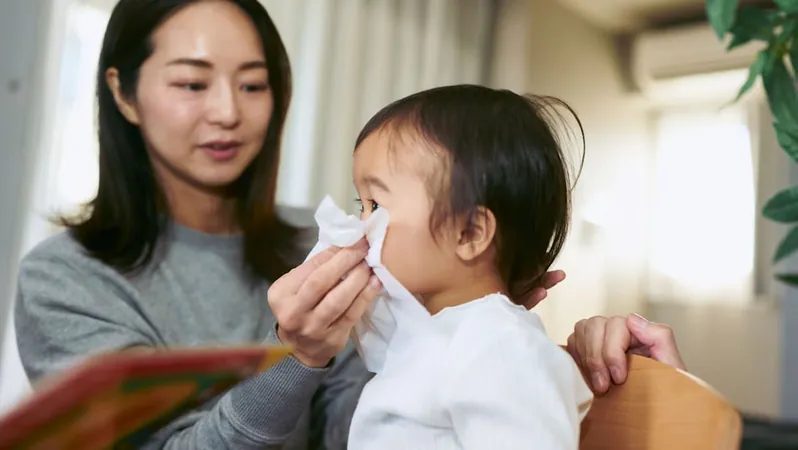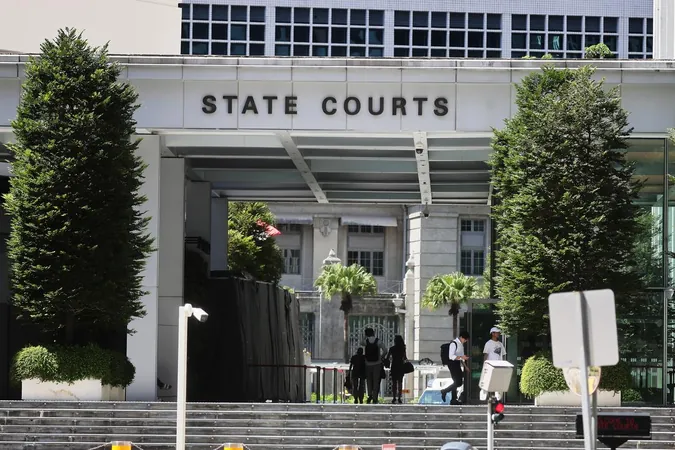
Unmasking RSV: The Hidden Threat to Infants
2025-09-03
Author: Wei Ling
Every Parent's Nightmare: The Silent RSV Epidemic
Each year, the respiratory syncytial virus (RSV) sneaks through Singapore, masquerading as a common cold among babies. Yet for our tiniest residents, what seems like a harmless bug can spiral into serious health complications requiring hospitalization.
A Major Cause for Concern
Data from the Communicable Diseases Agency (CDA) reveals that RSV is one of the top respiratory viruses causing pediatric visits in local polyclinics. Notably, a sobering study published in *Emerging Infectious Diseases* underscores that RSV is a leading cause of hospital admissions for acute lower respiratory tract infections in children, especially in infants under six months.
Shocking Global Stats
Globally, the World Health Organization (WHO) estimates that RSV results in over 3.6 million hospitalizations and around 100,000 deaths each year in children under five. This alarming data should send shivers down any parent's spine.
Recognizing the Symptoms Early
Dr. Juan Pablo Torres, a pediatric infectious diseases expert, warns that RSV doesn’t unveil its true nature immediately. It often starts with subtle signs like infants feeding less. A few days later, the situation escalates; parents may notice coughing and rapid breathing that can lead to life-threatening respiratory failure.
A Widespread Infection
Dr. Torres points out a shocking reality: nearly every child will be infected with RSV by age two. While it primarily affects healthy infants, it can also lead to bronchiolitis and pneumonia; 70 to 80 percent of RSV-related hospitalizations involve otherwise healthy babies.
The High-Risk Group
Some children bear a heavier burden, particularly those who are premature or suffer from congenital heart conditions or chronic lung issues. While most recover, he warns that severe RSV infections can leave lasting effects, predisposing around 20 to 30 percent of infants to asthma or airway hyper-reactivity later.
Hope on the Horizon: Immunization Advances
Finally, there’s light at the end of the tunnel. After years of limited options, Chile has taken a monumental step forward in 2024 by rolling out a national RSV immunization strategy, pioneering it in the Southern Hemisphere. This program has successfully administered a monoclonal antibody to over 150,000 infants, achieving an incredible 80 percent reduction in RSV-related hospitalizations.
A Call to Action in Singapore
In Singapore, health experts are sounding the alarm for greater protective measures. A recent consensus among pediatricians emphasizes the urgent need for including immunization against RSV in the National Immunization Programme to relieve the healthcare system burden.
Fighting RSV with Knowledge and Hygiene
With new immunizations on the horizon, refreshing hygiene practices remains crucial. The CDA urges regular handwashing, wearing masks when unwell, and avoiding close contact with sick individuals. Parents should keep sick children home from school to prevent RSV transmission.
Empowering Families
As these preventive tools develop, families and healthcare professionals now have enhanced ways to shield vulnerable infants from RSV. Dr. Torres emphasizes that early action and informed choices are vital in battling RSV.
Stay Vigilant!
If you're worried about your infant’s health, don’t hesitate to consult a healthcare professional for insights on preventive measures, including vaccines. For more essential resources, check out TogetherAgainstRSV.sg.





 Brasil (PT)
Brasil (PT)
 Canada (EN)
Canada (EN)
 Chile (ES)
Chile (ES)
 Česko (CS)
Česko (CS)
 대한민국 (KO)
대한민국 (KO)
 España (ES)
España (ES)
 France (FR)
France (FR)
 Hong Kong (EN)
Hong Kong (EN)
 Italia (IT)
Italia (IT)
 日本 (JA)
日本 (JA)
 Magyarország (HU)
Magyarország (HU)
 Norge (NO)
Norge (NO)
 Polska (PL)
Polska (PL)
 Schweiz (DE)
Schweiz (DE)
 Singapore (EN)
Singapore (EN)
 Sverige (SV)
Sverige (SV)
 Suomi (FI)
Suomi (FI)
 Türkiye (TR)
Türkiye (TR)
 الإمارات العربية المتحدة (AR)
الإمارات العربية المتحدة (AR)